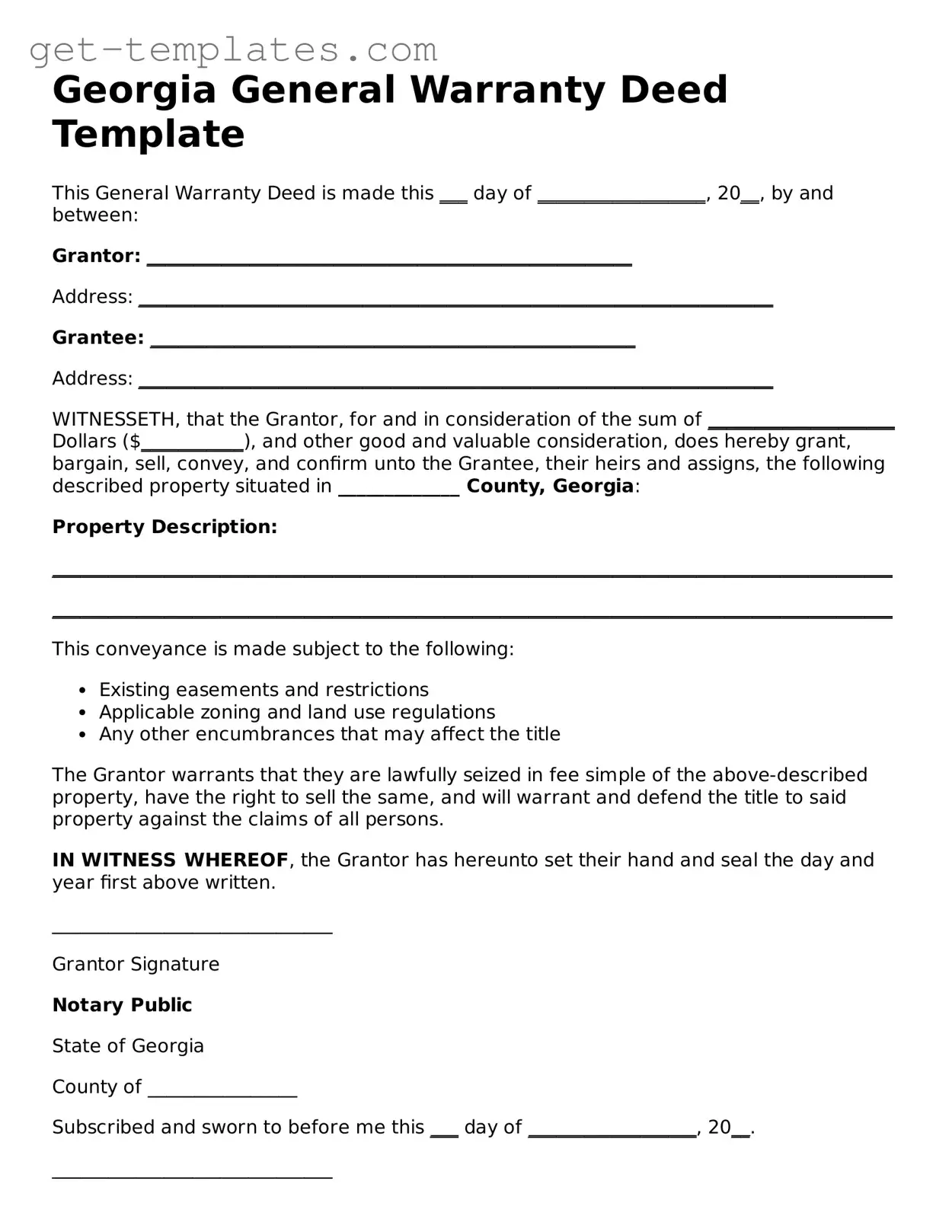Attorney-Approved Deed Document for Georgia
A Georgia Deed form is a legal document used to transfer ownership of real estate from one party to another. This form outlines the details of the transaction, including the names of the parties involved and the property description. Understanding this document is crucial for anyone looking to buy or sell property in Georgia.
Get Document Online

Attorney-Approved Deed Document for Georgia
Get Document Online
You’re halfway through — finish the form
Finish Deed online — edit, save, download made easy.
Get Document Online
or
⇓ PDF Form
